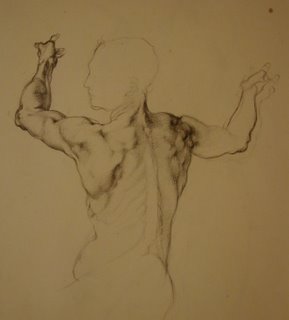Politics and Literature
I found a fantastic article about the academy's infection with politics, especially as regards literature and philosophy (American philosophy). Some excerpts:
Reclaiming Negative Capability, by Ihab Habbib Hassan
Characters in a novel elicit comments more appropriate to a "real" person, say a dying aunt or a mugger in the street, and provoke outrage or approval as representatives of an entire category, WASPS, Women, Blacks, etc. They may even serve as evidence in a legal, class-action against the hapless author. No doubt, literalism, naiveté of a certain kind, abets this tendency. But so does the current rage for identity politics; and beyond that, the conviction that politics matters more than both literature and philosophy. Thus are all representations forged into weapons of social struggle; thus are poetry and truth instrumentalized.
p. 311
Yet the intellectual, once locked into an oppugnant stance, faces acute risks of another kind. Opposition is reactive; the gesture of perpetual rebellion condemns to perpetual adolescence. The gesture also shrinks the world, turning it into a Manichean battle between top-dogs and underdogs, victors and losers. Where is the freedom in this? And is siding with the weak the same as siding always with the truth? Put another way, opposition flattens and externalizes the character of the intellectual because it gives established authority a spiritual and psychological (not just political) interest that it does not deserve; it gives power a total, false grip on our lives. Thus politics, in the words of Fredric Jameson, arrogates to itself "the absolute horizon of all reading and all interpretation." 15 (Is it not a hushed intellectual scandal that Western Marxists have yet to reckon with their colleagues, their students, and above all themselves, for confidently spreading failed ideas through half a century?) Again, I prefer the Emersonian view of mind, a mind enabling itself, without rancor or reaction, to take hold of life. Thus ends "Experience": "The true romance, which the world exists to realize, will be the transformation of genius into practical power" (p. 234).
p. 316
At this late point, I want to offer a historical glimpse of my subject, which is not intellectuals but negative capability. I do so because I want first to give the evidence of our time, and also because I find history ambiguously relevant to my theme. Always historicize, cry our ideologues, and they historicize always to learn from "history"--their interpretation of it--the same lesson. In this case, however, I find in history an ironic displacement: the old quarrel between philosophy and literature has turned into a more savage quarrel between politics and both.
p. 317-318
Heaney means triple "redress": how poetry restores something to the world, how it can re-establish itself as object and occasion of celebration, and how, finding its own rightness, poetry sweeps ahead into the fullest human self-realization. Thus to know poetry, Heaney says, "is to know and celebrate it not only as a matter of proffered argument and edifying discourse, but as a matter of angelic potential, a motion of the soul." 21
Unabashedly, Heaney speaks the language of spirit; but unabashedly, too, he fingers the loam of history. Indeed, for him the "frontiers of writing" are those we continually cross and recross, make and unmake, between poetry and politics, between sacred and profane knowledge, between the marvelous and the banal. This is no feeble piety; for poetry is "strong enough to help" (Seferis), respond, and answer "in its own language rather than in the language of the world that provokes it . . ." (p. 191). As a countervailing reality, poetry erects "a temple deep inside our hearing" (Rilke's phrase), at which we all need to worship in order to save both ourselves and the world (p. xviii).
p. 321-322
Reclaiming Negative Capability, by Ihab Habbib Hassan
Characters in a novel elicit comments more appropriate to a "real" person, say a dying aunt or a mugger in the street, and provoke outrage or approval as representatives of an entire category, WASPS, Women, Blacks, etc. They may even serve as evidence in a legal, class-action against the hapless author. No doubt, literalism, naiveté of a certain kind, abets this tendency. But so does the current rage for identity politics; and beyond that, the conviction that politics matters more than both literature and philosophy. Thus are all representations forged into weapons of social struggle; thus are poetry and truth instrumentalized.
p. 311
Yet the intellectual, once locked into an oppugnant stance, faces acute risks of another kind. Opposition is reactive; the gesture of perpetual rebellion condemns to perpetual adolescence. The gesture also shrinks the world, turning it into a Manichean battle between top-dogs and underdogs, victors and losers. Where is the freedom in this? And is siding with the weak the same as siding always with the truth? Put another way, opposition flattens and externalizes the character of the intellectual because it gives established authority a spiritual and psychological (not just political) interest that it does not deserve; it gives power a total, false grip on our lives. Thus politics, in the words of Fredric Jameson, arrogates to itself "the absolute horizon of all reading and all interpretation." 15 (Is it not a hushed intellectual scandal that Western Marxists have yet to reckon with their colleagues, their students, and above all themselves, for confidently spreading failed ideas through half a century?) Again, I prefer the Emersonian view of mind, a mind enabling itself, without rancor or reaction, to take hold of life. Thus ends "Experience": "The true romance, which the world exists to realize, will be the transformation of genius into practical power" (p. 234).
p. 316
At this late point, I want to offer a historical glimpse of my subject, which is not intellectuals but negative capability. I do so because I want first to give the evidence of our time, and also because I find history ambiguously relevant to my theme. Always historicize, cry our ideologues, and they historicize always to learn from "history"--their interpretation of it--the same lesson. In this case, however, I find in history an ironic displacement: the old quarrel between philosophy and literature has turned into a more savage quarrel between politics and both.
p. 317-318
Heaney means triple "redress": how poetry restores something to the world, how it can re-establish itself as object and occasion of celebration, and how, finding its own rightness, poetry sweeps ahead into the fullest human self-realization. Thus to know poetry, Heaney says, "is to know and celebrate it not only as a matter of proffered argument and edifying discourse, but as a matter of angelic potential, a motion of the soul." 21
Unabashedly, Heaney speaks the language of spirit; but unabashedly, too, he fingers the loam of history. Indeed, for him the "frontiers of writing" are those we continually cross and recross, make and unmake, between poetry and politics, between sacred and profane knowledge, between the marvelous and the banal. This is no feeble piety; for poetry is "strong enough to help" (Seferis), respond, and answer "in its own language rather than in the language of the world that provokes it . . ." (p. 191). As a countervailing reality, poetry erects "a temple deep inside our hearing" (Rilke's phrase), at which we all need to worship in order to save both ourselves and the world (p. xviii).
p. 321-322


